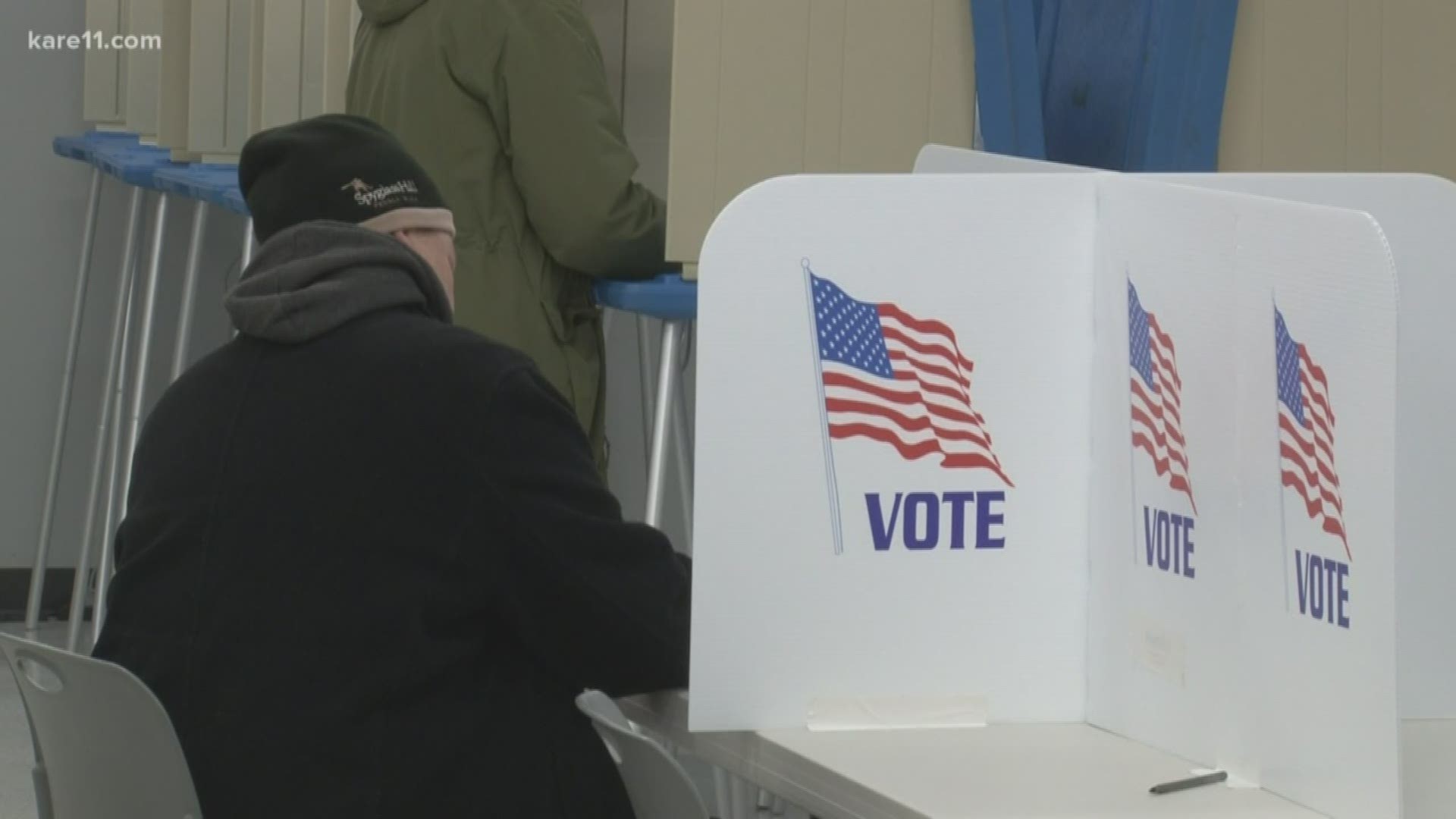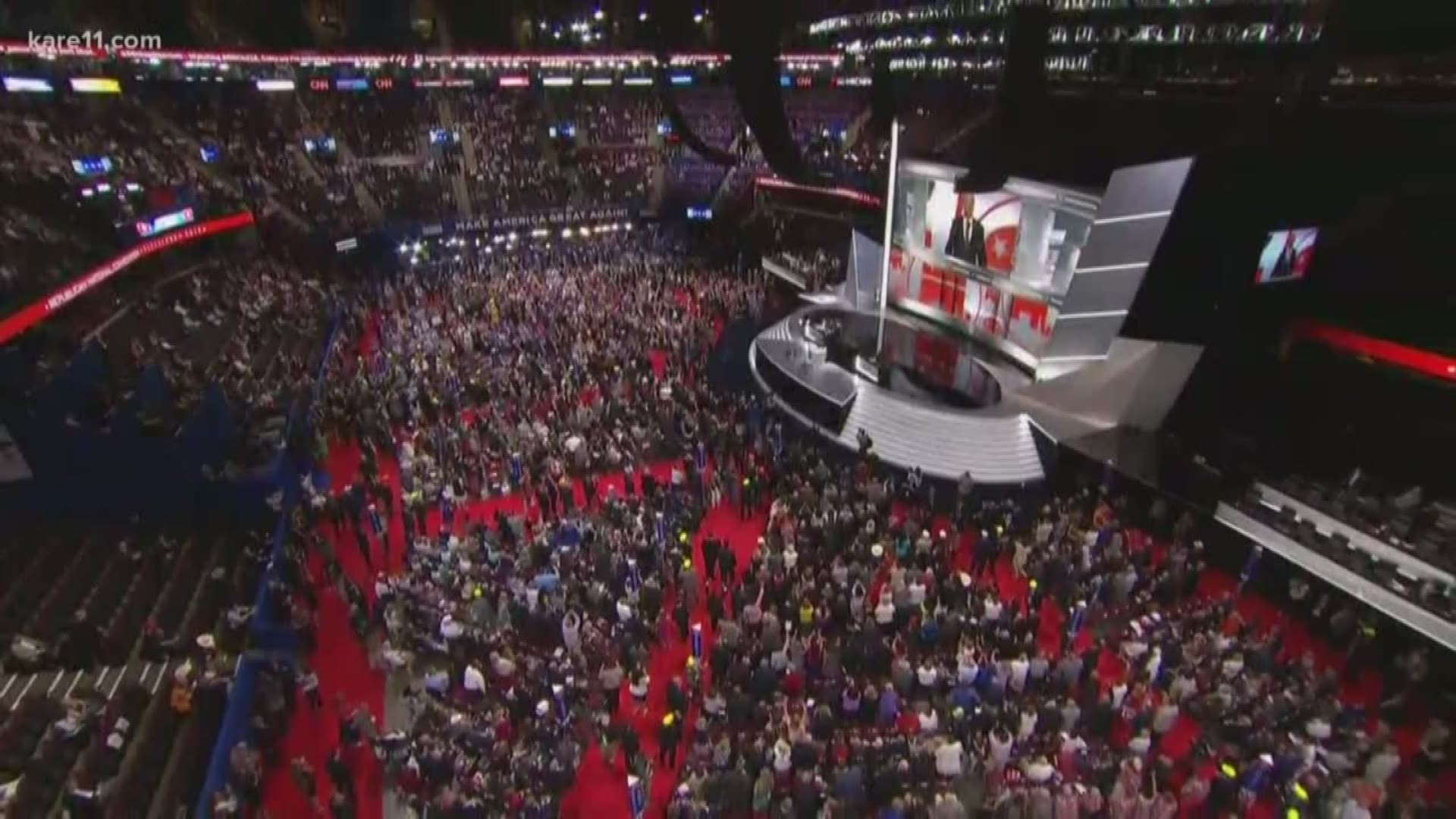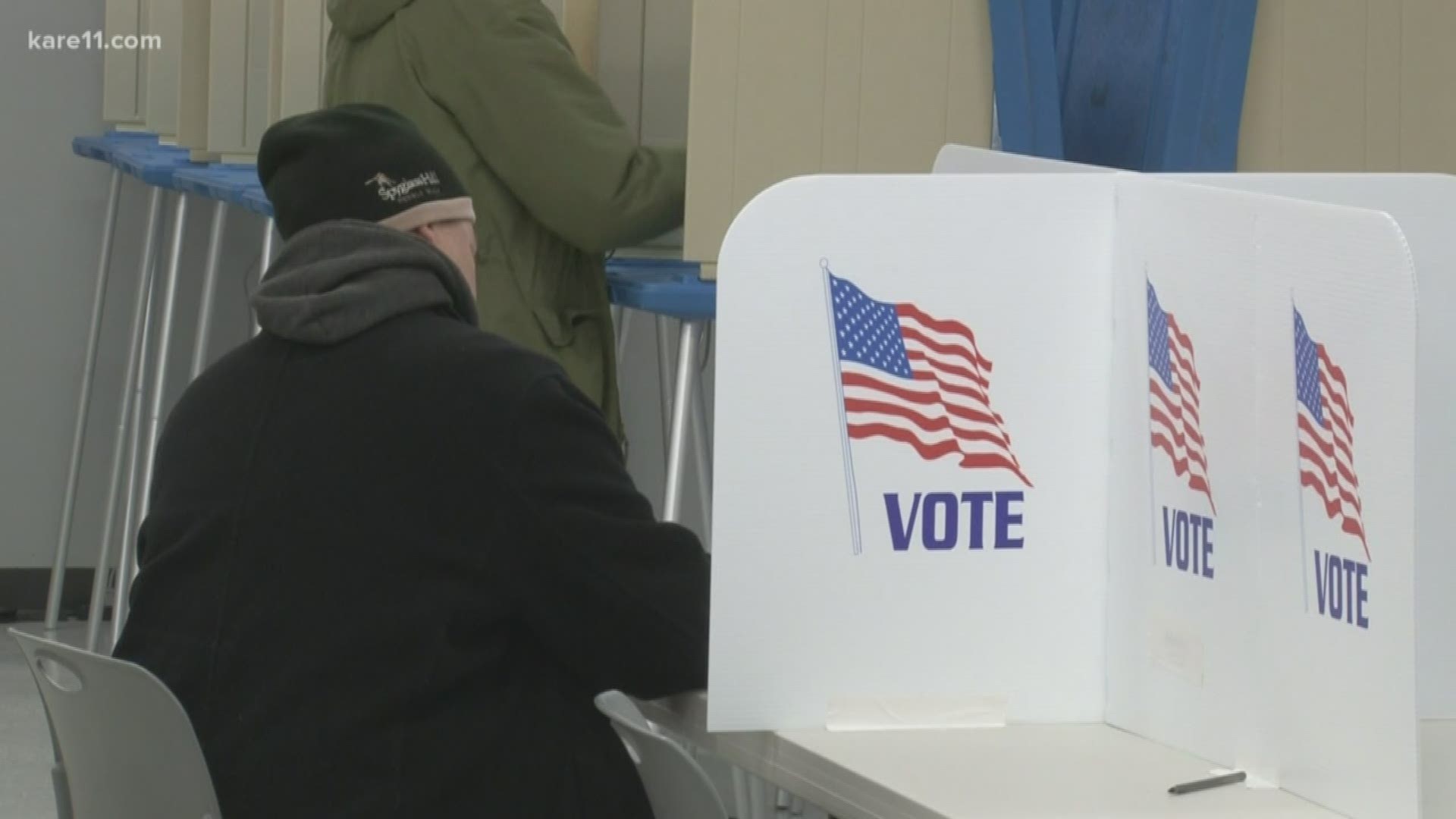ST PAUL, Minn. — With Super Tuesday only two weeks away, and early voting already underway, state lawmakers are looking for ways to allay fears about ballot privacy.
Minnesota's first presidential primary election in decades is set for March 3, but some are worried turnout will be suppressed by concerns about how party preference data will be handled.
"I've heard from many voters who aren't going to vote because they don't want this information out there," Rep. Ray Dehn, a Minneapolis Democrat, told KARE.
"We need to let our residents and the voters of Minnesota know by March 3rd we're doing everything we can to protect that data."
As things stand under current law, voters will be asked to select either a Republican or Democratic ballot. Election workers are required to record which ballot each voter picked, and then to provide a list of the voters' party preferences to the state's four major political parties -- DFL, GOP, Grassroots-Legalize Cannabis and Legal Marijuana Now.
The state political parties lobbied for that feature when the primary law was being crafted at the Capitol, saying the national parties require those voter lists to verify the integrity of the process -- to ensure that the results weren't skewed by voters from other parties.
Rep. Dehn's bill, which cleared the Government Operations Committee Tuesday, would classify that party preference information as private data. The state and national parties would be penalized for selling or distributing those voter lists.
"In my bill they actually have to request the data and as part of that request they have to actually sign a document that this is what it will be solely used for these purposes."
Other bills in the hopper at the Capitol would bar election officials from recording the party preference information in the first place, let alone sharing it with political parties. But the Republican National Committee and Democratic National Committee -- RNC and DNC -- have both said they won't seat Minnesota delegates to their national conventions if they don't get these lists.
Sen. Mary Kiffmeyer, the Big Lake Republican who heads the Senate Elections Committee, said that verification process is very important to the national parties.
"This is a nomination process on a national level where they have a vested interest and a very critical interest," Sen. Kiffmeyer told KARE.
"And remember, this is not an election where we're seating someone to office. This is party of the political parties' nominating process."
Kiffmeyer is opposed to changing the rules for the current primary cycle.
"Some people have already started voting, so you should wait until after the election to make any changes. My firm belief is we don't change things in the middle of that process. It's not fair to the voters."
She asserted that the state and national parties can be trusted not to violate the privacy of voters when it comes to their party preference, based on which ballot they use at the polling place.
"That's easy for Republicans to say because they already know who their party's nominee will be, so turnout isn't as important to them," Dehn remarked.
Since early voting began Jan. 17, some 50,000 Minnesotans have requested absentee ballots for the Super Tuesday primary. Of those, roughly 25,000 and been received and accepted by city and county elections offices across the state.
It's difficult to measure exactly how turnout has been affected, because it's first presidential primary in decades and it's the first one in the era of no-excuse, early absentee voting both in person and by mail.
But many lawmakers have fielded similar comments about privacy worries Dehn has heard -- that they fear their bosses or neighbors will eventually find out which ballot they selected.
DFL Chair Ken Martin told reporters recently he supports the framework of Rep. Dehn's bill, because the state party can live without the data and the changes would give national parties more incentive to respect the privacy of Minnesota voters.
GOP Chair Jennifer Carnahan has said it's not right to change the rules of the game after early voting is already underway. Carnahan opposes any changes to the presidential primary rules.



